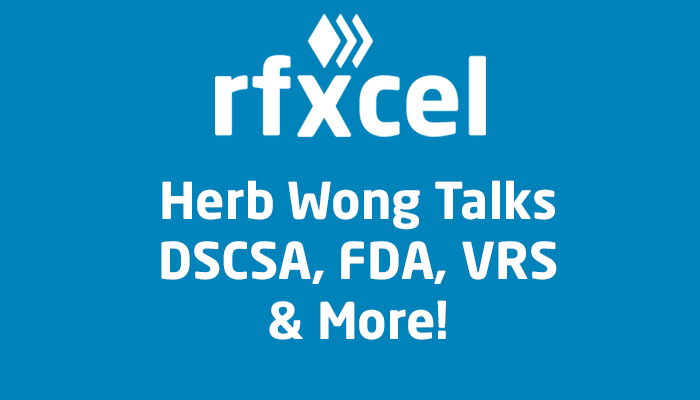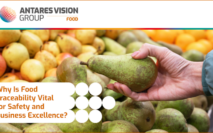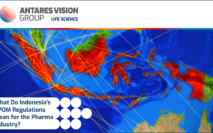What’s Happening with the DSCSA? We sat down with Herb Wong, our VP of marketing and strategic initiatives, to get the skinny on what’s going on with the Drug Supply Chain Security Act (DSCSA). Herb has been leading rfxcel’s Verification Router Service (VRS) pilot with the U.S. Food and Drug Administration (FDA), and has been involved with VRS testing and ensuring readiness for the November 27 DSCSA deadline. Here’s what he had to say.
The FDA announced on September 23 that it did “not intend to take action against wholesale distributors” that do not meet the DSCSA salable returns verification requirement before November 27, 2020. How does this affect rfxcel and the industry?
The FDA said the reason for the delay was to allow more time for production levels of testing. The VRS network is the lynchpin to enabling saleable returns. Based on our FDA pilot effort to test the readiness of the VRS network, we think this was a prudent step. Although individual VRS providers have tested their systems and have performed testing with each other, more testing is needed. Despite the enforcement delay, rfxcel and other VRS providers remain committed to meeting the original November deadline; however, the additional time will allow us to further verify the VRS network in a production environment. This will surface new issues not seen in a non-production testing environment.
I’ll just add that rfxcel is the pharma industry’s thought leader on VRS and the longest-tenured track and trace provider in the life sciences. Of course, we immediately addressed the FDA’s announcement on our blog.
What types of issues have you observed during the FDA pilot testing?
In October, we published a draft copy of our interim findings at the Healthcare Distribution Alliance’s (HDA’s) Traceability Seminar in Washington, D.C., and provided our final interim report to the FDA shortly afterwards. You can get a copy of the full interim report here, but here two findings that stood out for me:
First, connections: Approximately 40–50 percent of VRS test targets could not be tested during the pilot period due to connection issues. This was much higher than anticipated and was largely due to different providers moving to Quality Assurance (QA) environments for final testing. Resolution of these connection issues will not happen quickly. If this occurs when we are in a full production mode, then this can disrupt the network.
Second, for VRS providers that could be tested, all passed the positive test case of a valid Product Identifier. When we started testing various negative test conditions, we started to see variations. The most notable was how some providers responded to an invalid lot date. All providers detected this, but not everyone could reply with an error that identified that a failure was due to an incorrect date. This will be problematic for distributors because it will make it harder for them to troubleshoot failed verifications.
You mentioned that you were at the HDA Traceability Seminar (October 21–23). How did attendees respond to the DSCSA timelines?
At this point, most pharmaceutical supply chain participants have selected solution providers to help meet DSCSA requirements. Attendees were focused on gathering any new information from the FDA and understanding the readiness of solution providers to meet the next stage of the DSCSA, as saleable returns require a level of interoperability that is new to the network. After the Traceability Seminar, the HDA was asked “to reconvene the VRS Task Force for discussing the industry scale-up over the period of enforcement discretion.” rfxcel will be working further with the HDA and others to ensure that we put the extra time provided by the FDA to good use.
How are solution providers responding to the DSCSA timelines?
I already mentioned that all solution providers have committed to meeting the original November deadline. However, going beyond that simple statement, I have observed a renewed commitment by providers to ensure that we work collectively to ensure what we can meet the increased interoperability requirements required for VRS (i.e., saleable returns).
To give two examples, SAP reviewed our FDA pilot test cases and provided feedback that greatly improved the clarity of the testing. They have also provided test data that allows rfxcel to test readiness of their network. Furthermore, Chronicled/MediLedger provides a blockchain implementation of VRS that gives an additional nuance to our testing approach. I was invited to their headquarters, where we sat down and shared our testing approaches and agreed to work together to ensure proper coverage. These are just two examples, but we have received positive responses from many other providers.
You mentioned blockchain, which we all know is an industry buzzword. Did you observe any issues or opportunities with interoperability?
rfxcel has been investing in blockchain technologies and interoperability, so it was not an issue with blockchain providers. We expect seamless connectivity to continue, and we are in active discussions with blockchain providers to deepen our commitment to the technology.
To learn more about rfxcel’s FDA VRS pilot or our other leading-edge supply chain track and trace solutions, contact Herb directly at hwong@rfxcel.com and visit our website.





